| Name | Position | Phone | |
|---|---|---|---|
| Andreas, Heino | Technician | andreas@mpi-cbg.de | +49 351 210-1415 |
| Backova, Lenka | Guest Scientist | backova@mpi-cbg.de | |
| Bailles, Anais | Postdoc | bailles@mpi-cbg.de | |
| Bei, Yi Yang | Predoc | bei@mpi-cbg.de | |
| Brillard, Charlène | Postdoc | brillard@mpi-cbg.de | |
| Cossermelli Vellutini, Bruno | Postdoc | cosserme@mpi-cbg.de | +49 351 210-2751 |
| Dey, Bipasha | Postdoc | dey@mpi-cbg.de | |
| Girstmair, Johannes | Postdoc | girstmai@mpi-cbg.de | +49 351 210-2987 |
| Mejstrik, Pavel | Technician | mejstrik@mpi-cbg.de | +49 351 210-2569 |
| Schoene, Philip | Guest student | pschoene@mpi-cbg.de | |
| Serafini, Giulia | Predoc | serafini@mpi-cbg.de | |
| Tomancak, Pavel | Group Leader | tomancak@mpi-cbg.de | +49 351 210-2670 |
| Yadav, Vinca | Predoc | yadav@mpi-cbg.de | +49 351 210-2434 |
Technician
Heino studied agriculture, and after completing his degree, first worked in a consulting company and later on moved on to the University of Halle to work on various projects. Since 2000, he has been working as a technician at the MPI-CBG. He worked in the last years with different model organism like axolotls, frogs, and planarians. Now, in the Tomancak lab, Heino is still continuing his passion of working with water animals through other species, namely Hydra (jellyfish), Macrostomum (flatworm), and Platynereis (segmented worm). In cooperation with other researchers in the lab he maintains and amplifies the three species to enable studies of their embryogenesis and development. Outside of work, Heino likes to hike and to ride his bike.
Software Engineer
Yes, my last name means doctor! But despite the fact that I really work in a research institute. No, I don't have a PhD. So doctor who? I studied mathematics and did my diploma at the Technical University in Dresden. By combining this with a strong interest in software development, I can now enjoy the pleasure of analyzing the fascinating and beautiful image data recorded by my fellow biologist and life scientist. I have been working in the realm of Fiji image analysis software for five years now. Most notably, I came up with Labkit, a Fiji plugin that makes it intuitive to segment gigantic image data. And now I'm really looking forward to analyzing the lineages and tree data structures brought up by embryonic development and regeneration. Outside the Lab I enjoy cycling, gardening and seeing how my son grows up.
Postdoc
Anaïs did a Bsc and Msc in physics at Paris XI Orsay/Paris-Saclay University, with a focus on biological systems. She was mind-blown by movies of developing embryos, so she decided to start a PhD in developmental biology in Marseille. There, she studied Drosophila morphogenesis at gastrulation, and how tissue contractility and dynamics are controlled by both mechanical and chemical signals. She joined the lab as a postdoc to study the mysterious regeneration of Hydra aggregates, and how a heterogeneous group of cells can self-organize in the presence of noise. For more theoretical approaches to this question, she is working with the Zechner group. She likes long lunch breaks, improv theater and costume parties, or, for something completely different, reading and discussing history and philosophy of science.
Twitter: @AnaisBailles
Predoc
Marina has a degree in physics from the University of Buenos Aires and her project is focused on gastrulation mechanobiology. Using Light Sheet and confocal microscopy she observes and quantifies tissue flow. By perturbing the embryo with photomanipulation techniques, she assesses the nature of the morphogenetic events happening during gastrulation in a multi-scale approach, and the interplay of physical forces involved. In her free time, she enjoys doing sports, reading, dancing and painting.
Twitter: @CuencaM15
Postdoc
Born in the Alps of Austria Johannes did his Bachelor and MSc (Molecular Cell and Developmental Biology) studies at the University of Innsbruck. He then continued a PhD under the Marie Curie ‘NEPTUNE’ fellowship at University College London where he used the OpenSPIM for the first time to study the development of a polyclad flatworm, Prostheceraeus crozieri. Currently a postdoc in the group, he continues to study the embryogenesis of different flatworm species with different developmental modes and further advances OpenSPIM systems. He likes to take his two small kids for a hike into the ‘Sächsische Schweiz’ and recently created a publishing platform for fiction books with a friend (silberbuche.de).
Twitter: @jogirstmair
Predoc
Manan graduated in mechanical engineering from IIT Kanpur and then completed a masters in applied mechanics from Chalmers University. From 2014 up till 2017, he worked with acoustics in the automotive industry. During this period, he used to build graphical interfaces and implement solvers for differential equations. Currently, Manan uses computer vision methods to analyze volumetric imaging data in the context of the early development of the Platynereis worm. He likes to doodle, read science fiction and fantasy novels, and follow cricket matches.
Technician
Pavel was born just 60 km from Dresden, but on the other side of the border in Usti nad Labem. Then, inspired by Gregor Mendel, he moved to Brno to study Genetics and Molecular Biology at Masaryk University. After finishing his Bachelor and Master studies he started to work on cell cycle regulation during early mouse embryo development at Mendel University in Brno. Later on he switched his focus into medical research revealing new prognostic markers in patients with Lymphomas and Leukemias in the Department of Hematooncology at University Hospital in Brno. He has joined Tomancaklab to screen for gene expression patterns in various tissues of Drosophila using high-throughput RNA in situ hybridization and continues to work with different model organisms in the lab. He is interested in a lot of different sport activities, reading books, hiking and discovering new places mainly with his three kids.
Hiwi Student
Max is an undergrad in Molecular Biology and Biotechnology at the University of Technology in Dresden. Before he decided to enroll at the university he spend two years down under, travelling, working and doing things a backpacker usually does. His enthusiasm for biology and science in general was growing already back in school. For the lab he is primary working on processing and analyzing bio-images either with Fiji or by scripting in Python but also does he take care of the the transgenic Hydra population. When not in the lab he likes to do different sports, eat good or lay back and read a book.
Predoc
Giulia comes from Italy and completed her undergraduate studies there, at the University of Bologna. She got her BSc in Biotechnology, with a thesis on the characterization of new variants of breast cancer and her MSc in Molecular and Cellular Biology. During her Master work she encountered Drosophila for the first time, studying the protein Awd and its involvement in wingless signaling. She moved to Dresden for her PhD and now is studying the embryonic development of Drosophila melanogaster, with a particular focus on Scab-mediated blastoderm-vitelline envelope attachment and its role in gastrulation. She loves to dance, and in her free time she likes to practice different kinds of dances. She also enjoys going to the theater, reading a book or just having a walk along the Elbe.
Twitter: @GiuliaSerafin12
Postdoc
Bruno is a biologist fascinated by embryos and evolution. He obtained his BSc and MSc from the University of São Paulo, Brazil, where he studied the life cycle of sea biscuits to understand how they became flat. He then moved to Norway to investigate the evolution of cleavage patterns and body segmentation in spiralians, and obtained his PhD from the University of Bergen. Bruno joined the Tomancak Lab in Dresden to uncover the interplay between genetic patterning and epithelial morphogenesis of a mysterious invagination that divides the head–trunk boundary of flies during gastrulation. He loves imaging living embryos under the microscope and sharing these images and videos online for science outreach. Outside the lab, Bruno enjoys playing basketball, reading, and making music with his bass.
Mastodon: @bruvellu@biologists.social | Twitter: @bruvellu | Website: brunovellutini.com
Predoc
Vinca completed her BSc and Msc at the University of Delhi (Delhi) and the Centre for Human Genetics (Bangalore) respectively. After her MSc, she worked at the Institute for Stem Cell Science and Regenerative Medicine (inStem) as a junior research fellow, to understand the role of nutrient signalling pathways in maintaining quiescence-growth oscillations in nutrient-limited cell populations. Currently, she is a PhD student in our group, working closely with Jonathan Rodenfels' group to understand metabolic strategies adopted by developing embryos of different animal species. Outside of the lab, she dabbles in improv theatre, collects plants, runs, and plays fetch with her cat, Goblin.
Twitter: @whyvinca
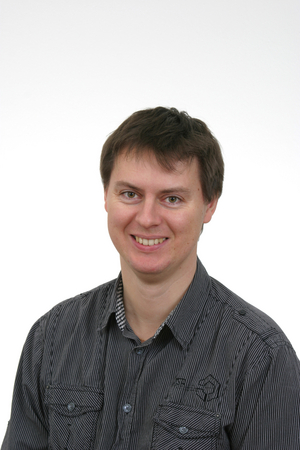
Postdoc
Vlado is a computer vision researcher who impacted many aspects of the lab research acting as a bridge between the requirements of biologists and the skills of the Fiji wizards (one of whom he became). He keeps collaborating with the lab to this day.
He is currently stationed in Czech Republic and coordinates several projects having to do with image analysis on HPC (in Ostrava) and the development of ImgLib2/BDV ecosystem (at CEITEC, funded by Chan Zuckerberg Initiative).
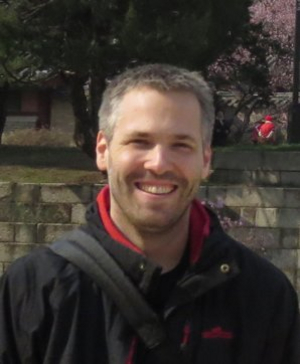
PostDoc
Stefan was an ELBE postdoc working with Tomancak and Grill labs. He discovered the phenomenon whereby attachment of cells to the inner surface of the vitelline envelope impacts gastrulation morphogenesis in insects. He worked on the Tribolium system with Akanksha Jain.
Afterwards he secured funding for an independent research group from DFG (Emmy Noether) and is in the process of setting up his own lab.
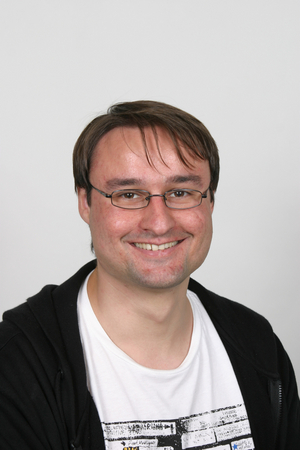
PhD student
Christopher Schmied worked on SPIM imaging of Drosophila embryos and developed very impactful protocols for sample preparation and data processing. He also injected some organization into the lab. Afterwards he worked in imaging facilities in Dresden and Berlin.
Currently he continues his succesful career of Research Data Scientist at Human Technopole in Milano (working with long-term collaborator of the lab - Florian Jug).
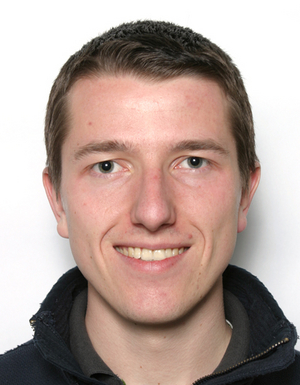
PostDoc
Sebastian joined shortly after his PhD with Suzanne Eaton. He worked with Tom Kazimiers and Helena Jambor on extending CATMAID framework to include GO annotations. His database of rab protein localization (FLYtRAB; with Marco Brankatschk) is a piece of art.
Afterwards Sebastian went to the Bundesinstitute für Risikobewertung in Berlin where he runs exciting scientific projects.
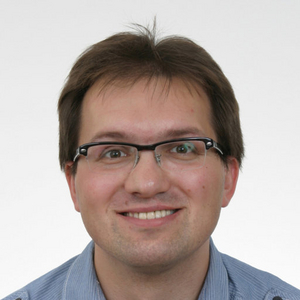
Grant manager
Pavel was working on the ARIB Teaming for Excellence project that was building a collaboration between MPI-CBG and the Institute of Molecular Genetics (IMG) in Prague. The project got all the way to Brussels but was eventually sadly not funded. Pavel went on to work for a biotech company SOTIO in Prague.
He is now a research scientist in the Cahova group at the Institute of Organic Chemistry and Biochemistry (IOCB) in Prague.
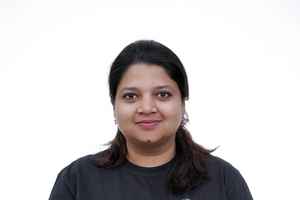
PhD Student
Akanksha introduced the Tribolium model system to the lab. She was co-supervised by Tassos Pavlopoulos and worked closely with Stefan Münster. They together discovered new conserved mechanisms of gastrulation morphogenesis.
She is currently doing a Postdoc in Barbara Treutlein lab at ETH Zurich in Basel working on brain organoids.
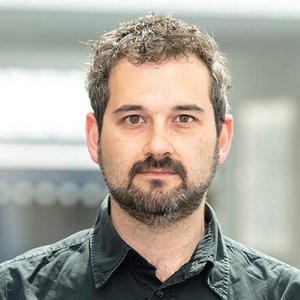
PostDoc
Dimitrios used fluorescence correlation spectroscopy (FCS) to study the dynamics of various transcription factors in different contexts of Drosophila development. He was very self-driven, independent researcher and we published many papers together. Subsequently he started his own lab at the University of Edinborough.
Currently he is starting a professorship and a research group at Crete.
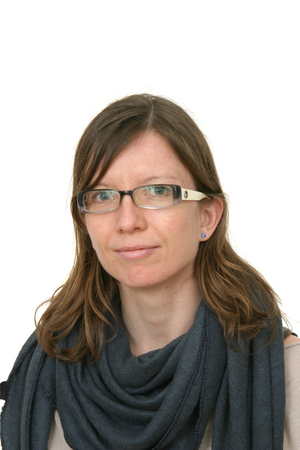
PostDoc
Mette introduced to the lab the wonderful Platynereis dumerilii model species. She collected amazing datasets on the early developmental lineages and inspired a lot of software development for the Mastodon project. We will publish this data eventually.
Mette is currently in Goettingen pursuing her passion for evo-devo.
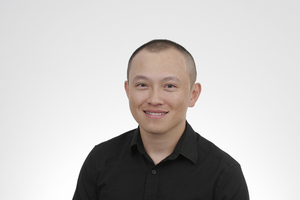
PhD student
Yu-Wen brought his boundless energy to the lab. He worked on the mechanism of chirality during Platynereis spiral cleavage. Publications are still in the works, but we already miss him.
After his PhD, Yu-Wen has moved to a Catenion Pharma/Biotech consultancy where he uses his energy, biology experience, creativity and language skills to help people make money.
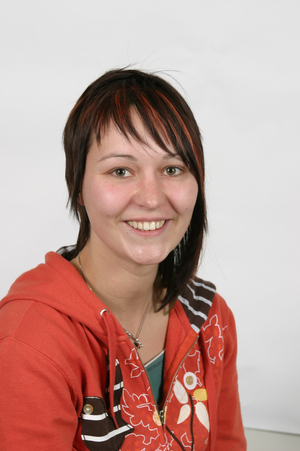
Technician
Michaela was for a while the heart and soul of the lab. She did a lot of molecular biology on the FlyFos system and produced many Drosophila transgenes.
She then moved to the CRTD institute in Dresden to work at the lab of Michael Sieweke where she is to this day.
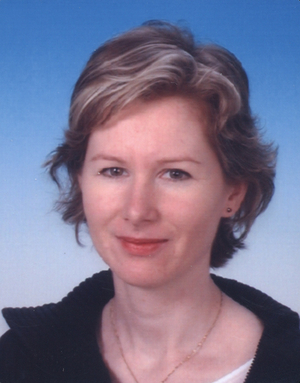
Postdoc
Ivana was working very indepently on the mechanism of epithelial sheet rotation in the Drosophila ovary.
She is now Ivana Henry and works in the laboratory of Marta Zlatic at MRC-LMB.
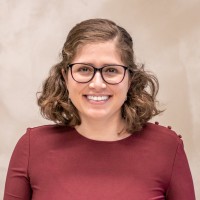
Master Student
Romina worked with Ivana Viktorinova on an RNAi screen for mutations affecting egg size and shape in Drosophila.
She then went on to do her PhD with Suzanne Eaton at MPI-CBG,
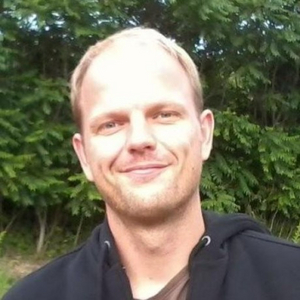
Postdoc
Tobias has a strong background in computer vision and when he was in the lab he developed ImgLib2, BigDataViewer (BDV) and MaMuT/Mastodon Fiji components. He then moved to work with Florian Jug working on related subjects.
He is currently freelancing, harvesting the fruit of the work on ImgLib2/BDV that became foundational components of Fiji.
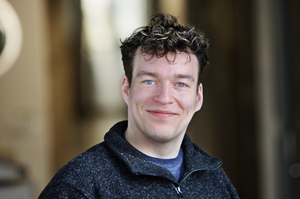
Software engineer
Johannes is the "Mother of Fiji". His contribution to the establishment and development of the platform cannot be overstated. It was an honour working with him over the years.
After two stints in the lab (long and a short one) interrupted by a Fiji-related job in Madison Johannes went to Microsoft. My only regret it that I didn't manage to create a job he deserves.
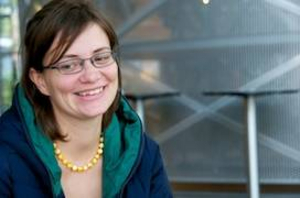
Postdoc
Helena established the Dresden Ovary Table (DOT) database of RNA localization in the Drosophila ovary.
She then re-invented herself as an educator and opinion leader in scientific data communication and figure design.
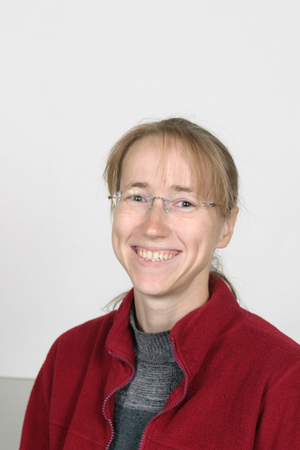
Postdoc
Monika was funded my Marie-Sklodowska Curie grant to work on the GENCODYS project studying cognitive disorder associated genes in Drosophila.
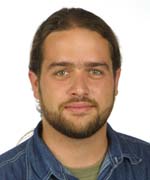
Technician
Pete has a very unique background and he is a doer. He built the OpenSPIM microscope.
He currently works for Oxford Instruments/Andor.
Postdoc
Tassos worked on appendage morphogenesis in Parhyale hawaiensis. He also brought Tribolium castaneum research topics to the lab. He was funded by a Marie Sklodowska-Curie grant. Afterwards he became an independent fellow at Janelia Research Campus.
Currently he runs an independent research group at IMBB-FORTH in Crete.
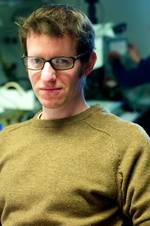
Postdoc
Alex studied the evolution of gene expression during Drosophila embryonic development with the focus on the hourglass model. His contribution to the lab's first big paper was invaluable both conceptually and in terms of data analysis. He went on to establish his own group in Vienna.
He is now Principal Bioinformatician at Cancer Research UK (CRUK).
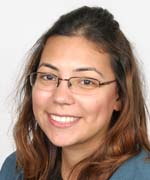
PhD student
Asli was studying the sex specific divergence of embryogenesis in different Drosophila species using transcriptomics techniques.
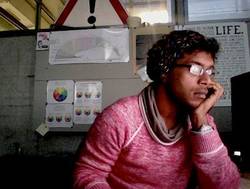
PhD student
Vineeth studied the divergence of gene regulatory networks in evolution using informatic analysis of deep sequencing data.
He currently works at a bloodbank in Dresden and runs a famous local coffee shop.
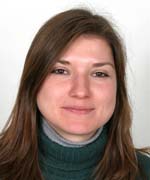
Technician
Maria helped us make and characterize genomic fosmid libraries in different Drosophila species.
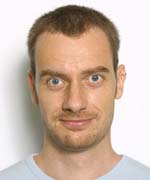
PhD student
Stephan used his mad skillset in computer vision and great biology hands to develop foundational tools to reconstruct and analyze massive serial section transmission electron microscopy acquisitions of the Drosophila nervous system. We published many papers together. His efforts were recognised by the recruitment as Lab Head to HHMI Janelia Research Campus right after PhD.
He is currently the interim Head of Janelia's Computation & Theory Research Area

Master student
Michael was imaging patterns of gene expression during Drosophila embryogenesis using SPIM. He was involved in the OpenSPIM project. He then did his PhD in Jan Huisken's group at the MPI-CBG.
He is currently CZI Imaging Scientist & Field Application Scientist for Flamingo, the modular & shareable light sheet microscope.
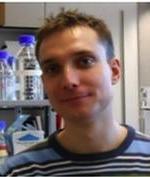
Hiwi
Kamil was working on the FlyFos libraries. He went on to do his PhD at the ETH Zurich in the laboratory of Wilhelm Krek.
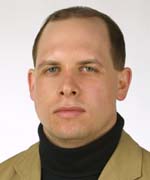
PhD student
Stephan developed the stitching and SPIM registration tools, contributed to Fiji, ImgLib2 and many micro-array related projects in our and other labs at the CBG. He then did a post-doc with Rob Singer and Gene Myers pendling between Janelia Farm and MPI-CBG, funded by HFSP. He run an independent research group at BIMSBI in Berlin.
Currently Stephan is the Director of Scientific Computing at HHMI Janelia
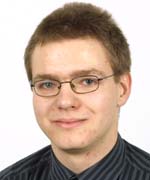
PhD student
Radek developed tools for reverse genetic manipulation of genes within large genomic transgenes - the FlyFos system. He then did a Postdoc with Bassem Hassan funded by EMBO. Later he started a research group at CRI in Paris.
He now works as Senior Researcher at Synovance and has a nice homepage.

Master student
Radostina was developing a protocol for dual color fluorescent RNA in situ hybridization
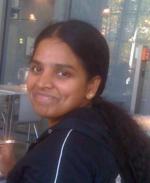
PhD student
Manonmani was working on sequence determinants of gene expression patterns. She continued this type of work at Duke University in the lab of Uwe Ohler.
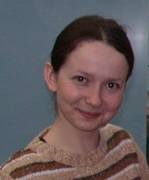
PhD student
Karolina was working in the lab on he hourglass model of developmental evolution. She started with PAvel already in Berkeley and helped set-up the lab in Dresden. She collected gene expression data of outstanding quality and was instumental to the lab's first big paper. She then moved to Oxford to do a PostDoc in the lab of Ilan Davis.